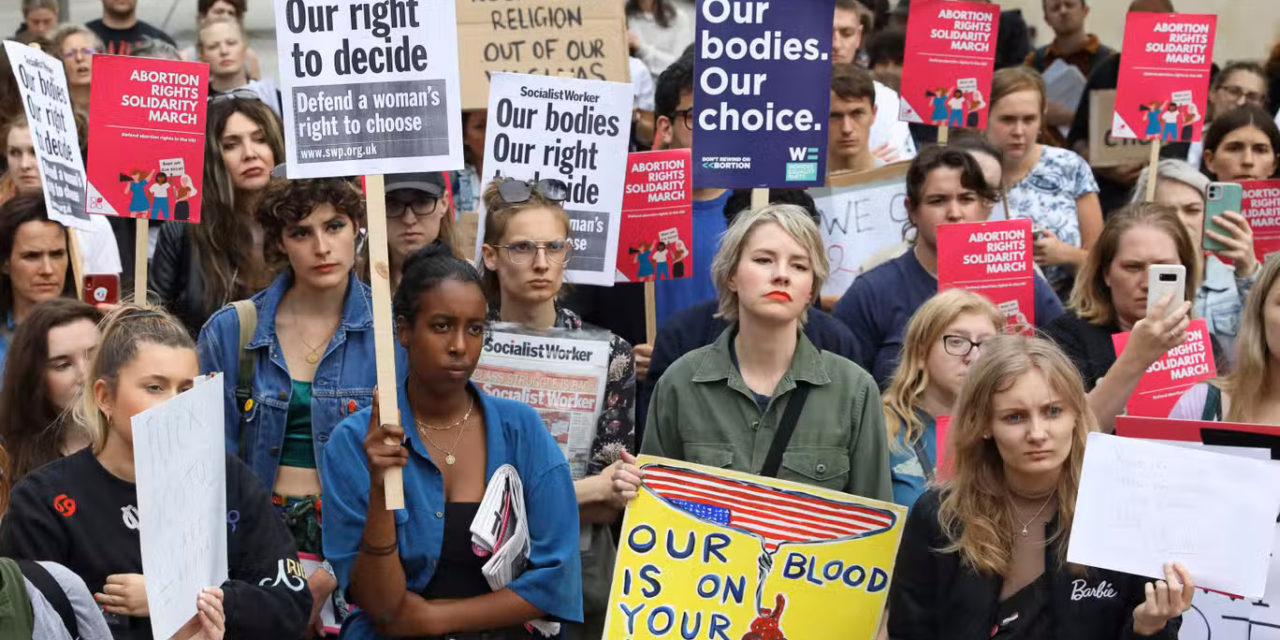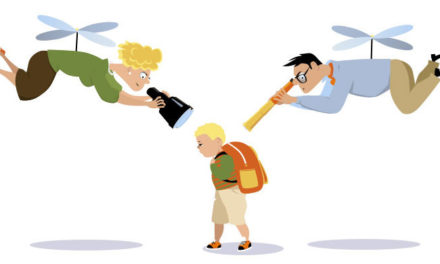Unless you’ve been living under a rock, you will have heard about the global disquiet following the US Supreme Court’s decision to overturn the Roe v Wade ruling of 1973, thus enabling states to ban abortion in most circumstances.
I’d never given much thought to abortion, taking the approach that I would cross that bridge if I ever came to it, obviously hoping that I never would. However, one of my recent content writing jobs was an article about the history of abortion cases in the US Supreme Court, leading up to the recent ruling.
This required me to do tons of research into half a century of legal battles leading up to the overturning of Roe v Wade, and in doing so it forced me to explore my feelings around abortion more seriously.
And while I’ve gained a better (but by no means complete) sense of my position on abortion, the thing that struck me most during my research was the complexity of the issue.
While I may discuss some of my own views, it’s absolutely not my aim to influence anyone’s opinion about abortion. Nor am I trying to explain the different sides to the abortion debate (you can find out more about that in this article)
I simply want to shed some light on the complexity and difficulty of the issue.
Background
In 1973, the US Supreme Court ruled in favour of a woman who argued that her right to abortion was protected under the US Constitution (the Roe v Wade case). In doing so, it legalised abortion up to 24 weeks of pregnancy, the point of ‘fetal viability’ (the time at which a foetus can live outside the womb).
Over the following years, several high-profile cases gradually dismantled the framework established in Roe v Wade, until it was completely overturned in June 2022. This returned the power to legislate abortion back to individual states. Many reimposed strict restrictions on abortion, thus limiting or denying access to huge numbers of women.
This has led to fierce global debate and fears that it’ll lead to changes to abortion laws in other countries.
In the UK, abortion is legal and available through the NHS. It is only allowed before 24 weeks, unless there are exceptional circumstances such as risk to the mother’s life or severe health defects in the baby. The NHS makes it very clear that a decision about abortion is the woman’s alone.
Difficulties
The incredible complexity of the abortion debate was elegantly articulated by the Justice of the Supreme Court, Harry Blackmun, who wrote the opinion on the Roe v Wade ruling.
“We forthwith acknowledge our awareness of the sensitive and emotional nature of the abortion controversy, of the vigorous opposing views, even among physicians, and of the deep and seemingly absolute convictions that the subject inspires. One’s philosophy, one’s experiences, one’s exposure to the raw edges of human existence, one’s religious training, one’s attitudes toward life and family and their values, and the moral standards one establishes and seeks to observe, are all likely to influence and to color one’s thinking and conclusions about abortion. In addition, population growth, poverty, and racial overtones tend to complicate and not to simplify the problem.” (Taken from this Guardian article)
For many people, their stance on abortion rights is so deeply ingrained, so emotionally charged and so entwined with their identities that objective debate is unattainable. Indeed, when people’s views are formed this way, any challenges often lead them to reinforce them further.
Here are some of the things that I think mean the abortion debate is never going away.
When does life begin?
A central theme in the abortion debate is whether or not abortion constitutes the taking of a human life. Which raises the question, when does life begin?
You certainly won’t find me trying to answer that question. I find it impossible to picture a point in the development of an embryo or foetus where one moment, it is not alive, and the next moment, it is.
Many people believe life begins at conception, others when there’s a heartbeat, and others when the baby is ‘viable’ at 24 weeks. There are so many factors that influence how we arrive at these beliefs, such as religion, culture, scientific knowledge and family influences. How do we even get close to everyone agreeing on it?
The finest scientific, philosophical and theological minds throughout human civilization haven’t been able to settle on an answer, and don’t appear to be doing so any time soon.
Oversimplification in the media
As with most issues these days, abortion rights are often framed as a binary debate, shorn of all context, being fought between two opposing camps: pro-life, who believe in preserving the life of the unborn child, and pro-choice, who believe it is solely a woman’s right to make decisions about her body and pregnancy.
The way it’s presented often implies that if you hold one belief, you must be strongly and absolutely opposed to the other: if you aren’t pro-life, you must be in favour of murdering babies; If you aren’t pro-choice, you must believe in the oppression of women and removing their right to control their bodies.
However, the reality is much more complex and nuanced than that, and the polarization only seems to fuel hostility. It’s possible to agree with aspects from both sides. For example, someone who believes in the sanctity of life may also believe in a woman’s right to control her body.
Rather than holding a blanket opinion that’s unsuitable for such a complex issue, perhaps it’s better to think about the context of each situation.
But of course, that sort of thoughtful, nuanced, civilised discussion doesn’t make for good clickbait or news programmes, so we’re likely to see more of those raging, polarised battles in the mainstream media.
Lack of empathy
Appreciating nuance and applying context to opinions and debates requires empathy, something that also seems to be in short supply these days.
As I’ve mentioned, popular media contributes to this, with the way it polarises debates to generate more engagement.
But social media also plays a huge part as it creates ‘echo chambers’ where people are only exposed to ideas and media that reflect their own views.
I have first-hand experience of the damaging effects of this culture, from my days as a student when I used to post all kinds of politically ideological crap on my social media. The algorithms show you more and more content that aligns with your views, and your posts will get plenty of comments, likes and shares from people who agree with you.
This gives you a juicy hit of dopamine, it makes you feel like you must be right and even encourages you to get more radical with your views. But it’s all just an illusion.
Of course, all I was really doing was narrowing my own perspective, distancing myself from those who held different views and annoying people who didn’t want to see politically ideological crap on their feeds. It’s why I now consciously avoid posting that sort of thing.
Anyway, I’m sure that like most issues, the abortion debate is vulnerable to the narrowing of perspective caused by social media echo chambers, thus making it more difficult for people on all sides to put themselves in others’ shoes.
People haven’t had to face up to their opinions
Every day, thousands of women have to make difficult choices about their pregnancies. But the abortion debate is influenced by so many people who haven’t had to face up to the consequences of making a decision about abortion.
I’m referring of course to men, who will never have to contemplate their bodies going through a pregnancy. But it also includes women who have been fortunate enough to have never needed to make a difficult, life-changing decision about their pregnancy.
Opinions are easy to uphold in theory, but what about when you are actually faced with a decision where there are no easy solutions and the impact will be deep and long-lasting?
What would someone who identifies as ‘pro-life’ do when faced with the prospect of raising a child with severe health defects that would impact hugely on the wellbeing of both the mother and child, and possibly even the existing children in the family?
And while I agree with ‘pro-choice’ arguments and the legal position of termination before 24 weeks, I can absolutely see why some people are against it. When you see the 20-week scan and the little foetus is moving all its well-formed parts and its heart is beating, I can completely understand that many people will see it as being alive, and having the same rights as a person.
Empathy won’t end the debate, but a bit more understanding and sensitivity to other people’s views and situations would surely lead to more progress.
Conclusion
Abortion is such a complex and sensitive issue. It’s something I hope Amy and I never have to contemplate, but you just never know. At least we are lucky that we live in a country where Amy would be able to choose what is right for her.
Of course, women in parts of the US and around the world don’t have that choice, and will never stop fighting until they do. But there will always be people who, for so many different reasons, oppose abortion. So the debate is sure to march on for years to come.
Got any thoughts on this issue? I’d love to hear them.
(Featured image from The Independent)







Recent Comments